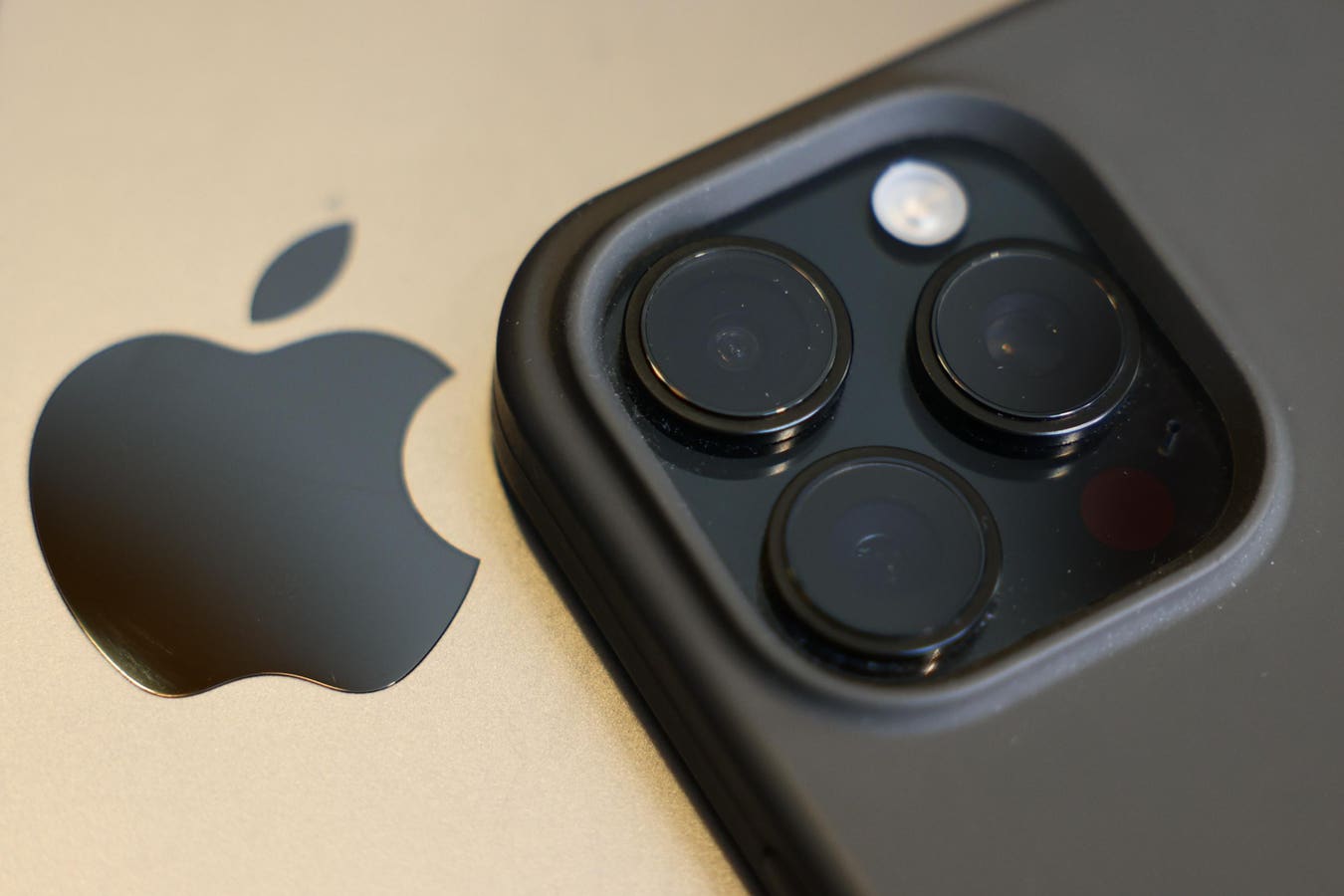Medical school grads are aiming for psychiatry which might seem questionable due to AI taking on mental health guidance.
getty
In today’s column, I examine the latest headline news that medical school grads are avidly pursuing psychiatry as their career pathway, which seems somewhat contradictory to ongoing pronouncements that AI is going to take over as a mental health advisor and usurp the role of human therapists. Why would sharp-as-nails med school grads opt toward a presumably dead-end occupational route?
Let’s talk about it.
This analysis of AI breakthroughs is part of my ongoing Forbes column coverage on the latest in AI, including identifying and explaining various impactful AI complexities (see the link here).
AI And Mental Health Therapy
As a quick background, I’ve been extensively covering and analyzing a myriad of facets regarding the advent of modern-era AI that produces mental health advice and performs AI-driven therapy. This rising use of AI has principally been spurred by the evolving advances and widespread adoption of generative AI. For a quick summary of some of my posted columns on this evolving topic, see the link here, which briefly recaps about forty of the over one hundred column postings that I’ve made on the subject.
There is little doubt that this is a rapidly developing field and that there are tremendous upsides to be had, but at the same time, regrettably, hidden risks and outright gotchas come into these endeavors too. I frequently speak up about these pressing matters, including in an appearance last year on an episode of CBS’s 60 Minutes, see the link here.
If you are new to the topic of AI for mental health, you might want to consider reading my recent analysis of the field, which also recounts a highly innovative initiative at the Stanford University Department of Psychiatry and Behavioral Sciences called AI4MH; see the link here.
Latest News Is Uplifting
A recent news report noted that medical school graduates are increasingly pursuing psychiatry. In a posting entitled “More Med School Grads Choose Psychiatry – Again” by Mark Moran, Psychiatric News, May 29, 2025, these key points were made (excerpts):
- “A total of 1,975 graduating seniors at allopathic and osteopathic medical schools matched into psychiatry training programs as part of this year’s National Resident Matching Program.”
- “That figure is up from 1,823 last year and marks the 14th consecutive year that psychiatry has increased its match numbers.”
- “Educators who spoke with Psychiatric News attribute the reversal to growing societal recognition of the importance of mental health and the value of psychiatry; a younger generation of medical school graduates who are committed to using their skills to address social determinants of health that are critical to mental health; and the perception of better work-life balance associated with psychiatry.”
The claimed overarching basis for this interest in psychiatry, as suggested in the last point, would be that we are daily bombarded with indications that mental health issues are becoming widespread. Thus, these younger generation grads are undoubtedly seeking to apply their acumen to solving this national and global dilemma. Good for them.
One could also cynically observe that this also means that there ought to be a lot of business available for those grads. Namely, the rising demand for therapy will be strong and ensure a long-lasting livelihood for this chosen profession. Nothing is wrong with wanting to have a financially secure future.
All seems glorious and upbeat.
The AI Mental Health Takeover
The hitch is this.
There is an immense rise in the use of generative AI and large language models (LLMs) as a surrogate for seeking mental health guidance. Indeed, many predictions are that people often prefer AI since it easy to access on an anywhere anytime basis, it is super inexpensive if not free to use, it tends to be highly empathetic in appearance (see my discussion at the link here), and AI seems to be a kind of anonymous non-judgmental form of psychological analysis (this isn’t the case but many falsely believe this to be true).
All in all, the bottom line is that AI is predicted to gut the need for human therapists. Patients will angle toward using AI in lieu of seeing a mental health professional. Even if AI doesn’t seem a suitable replacement from the perspective of the profession itself, clients are going to gravitate toward AI anyway. The alluring traits, as I’ve noted, are so compelling that it is hard to justify going toward the human therapist’s direction.
How could those savvy med school grads not somehow discern this emerging disruption and transformation of the mental health realm?
It seems quite a vexing mystery. These are smart students who have painstakingly made their way in a herculean fashion through modern med school. Choosing their next step is bound to be something they have noodled on throughout the excruciating medical school experience. The odds of making a haphazard choice are exceedingly low.
What gives?
Eyes Wide Open Is The Case
First, let’s assume that they are generally cognizant of the looming takeover of AI in the mental health realm. I say this because some pundits would contend that they are unaware of this possibility. These newbie grads simply don’t realize that AI is rapidly emerging in this domain.
My interactions with med school students suggest otherwise.
These are digital natives who embrace the latest online tools. Many of them leaned into generative AI and LLMs during their schooling, often doing so on their own since the university was either silent on the matter or was agonizingly trying to figure out what role AI should have in the medical education arena. Via grit and keen interest, these battle-hardened med school students have ventured into the AI side of things.
The gist is that few of these grads seem to have their heads in the sand. Most tend to see clearly that AI is coming. They are not choosing a path that will catch them completely off-guard, which is a base assumption that some are saying is going to happen to them.
Belief In The Human-To-Human Sanctity
One logical basis for going the psychiatry direction is that they ardently believe in the sanctity of human-to-human interaction.
People who use AI for their mental health pursuits will, at times, realize that it isn’t the same as a truly human-to-human experience. They will rely partially on human-to-AI assistance but ultimately seek human pairing too. It isn’t a one-size-fits-all solution. Instead, AI becomes part of a larger picture that still includes human therapists.
I’ve coined the new arrangement of therapist-AI-patient as the triad, which is gradually supplanting the classic duo or dyad of therapist-patient; see my discussion at the link here. Med school grads readily grasp this evolving relationship. For them, adding AI into the mix provides no fear.
They astutely perceive that AI has its place, as does the human-to-human element.
Embracing AI Rather Than Sidelining It
Another facet is that these med school grads are eager to embrace AI.
Whereas some longstanding members of the profession are resistant to AI and insist that AI must be kept out of the loop, these eye-opening grads realize that there is little sense in tilting at windmills. You might as well accept that AI is going to be an integral part of the profession. It is career-limiting to try and simply wish that AI goes away.
Advances in AI are going to radically expand how AI gets immersed in mental health advisement. This is a train that isn’t going to stop. Recent grads aim to be on the train, rather than getting rolled over by the train.
AI is already in the loop and will increasingly be in the loop. Period, end of story.
Shaping AI In Mental Health
This embracing of AI goes a step further.
Some grads are hopeful of being pioneers in intertwining AI into the field of psychiatry. When the transformation of a domain is underway, great opportunities arise. For my recounting of the history of AI and the field of psychology as intertwined cousins, see the link here.
Think of it this way. The golden age of therapist-AI-patient is going to inevitably emerge. We aren’t there yet. If you want to make a difference, a big difference, the timing of doing so is almost ideal.
AI will allow a reach of mental health guidance at a massive scale. We already know that, for example, ChatGPT by OpenAI already garners around 400 million weekly active users, and some proportion of those are indubitably leveraging AI for mental health advice (see my effort to calculate the population-level magnitude, at the link here).
Now is the early stage of enormous change afoot, and these grads are going to be part of that new wave. In a given standalone career, there are only so many patients or clients that a solo therapist can help out. The number of patients is capped by the number of hours that a psychiatrist can muster on a weekly and annual basis. Time is precious.
But by being instrumental in shaping AI for mental health, they can have a demonstrable impact on an immense scale. Their energy and enlightenment on how AI should undertake mental health guidance provides a strident possibility for establishing a legacy that will last their lifetimes and beyond.
Money Making Too
Let’s revisit the earlier noted factor of an expanding demand for mental health advisement and the somewhat materialistic assumption that pursuing psychiatry will therefore ensure a long-lived livelihood for those in the psychiatry field on a demand/supply basis. Again, there’s nothing wrong with picking a career path that provides sufficient monetary fulfillment along with professional fulfillment.
Some of these grads are undoubtedly eyeing how they can avidly pursue an AI startup that weaves together the latest in AI and the AI-driven delivery of mental health advice. There are plenty of big bucks flowing from VCs and healthcare providers to this niche. Might as well jump into that lucrative pond.
In essence, their forte provides insights into psychology and human mental health guidance, and they are primed and ready to aid in devising AI that can do a bang-up job, similarly. One angle is to pair up with erstwhile heads-down AI developers to figure out ways to get AI to do this. Especially getting the AI to act safely and suitably.
You see, there are many weaknesses and concerns about how AI can actually undercut mental health by giving out lousy advice or even endangering guidance — these are yet to be resolved concerns. See my analysis at the link here.
Disruption As Challenge And Opportunity
For those grads that might be behind the eight ball, perhaps they aren’t foreseeing the upcoming disruption that is going to undeniably occur. If they want to have a conventional mental health practice, good luck with that. Ignoring AI won’t make AI go away. At some juncture, their non-AI imbued practice will have to contend with AI or close its doors.
I would wager that most of these grads are wise to the advent of AI in their profession.
They aren’t sure what way AI is going to go. They aren’t quite sure what their role will be in the upcoming transformation of how mental health therapy takes place. They are certainly sure that they have the right stuff that will ensure they are primed to take on new ways of doing business.
The final word for now goes to Carl Jung and his legendary remark: “Who looks outside, dreams; who looks inside, awakes.” That’s exactly what those new grads pursuing psychiatry already know to be true, particularly in an AI-based future.









